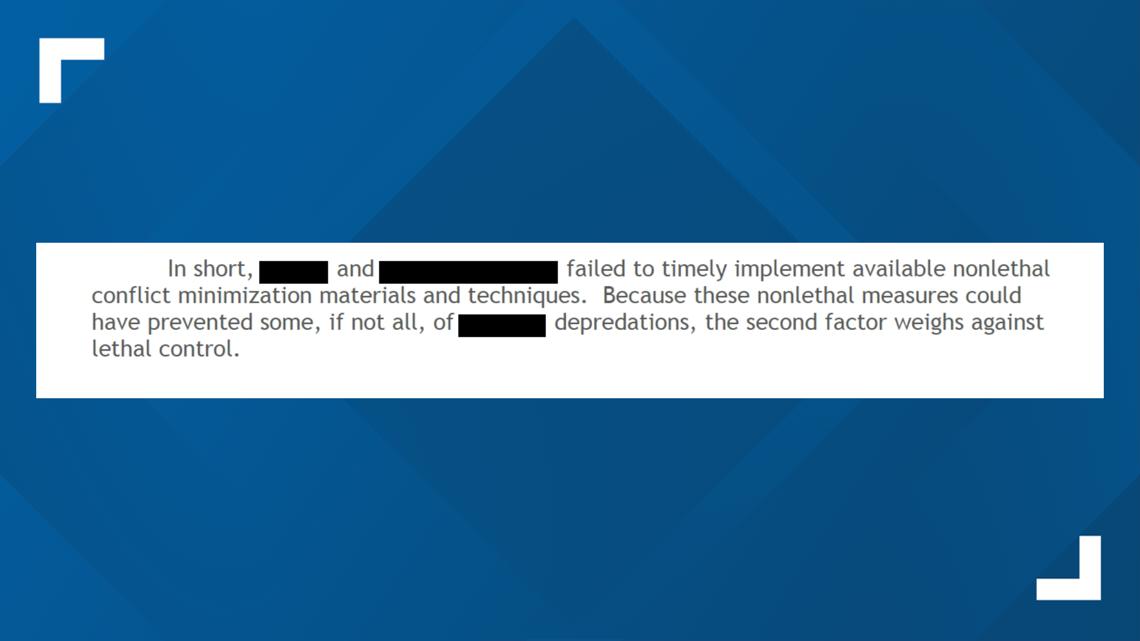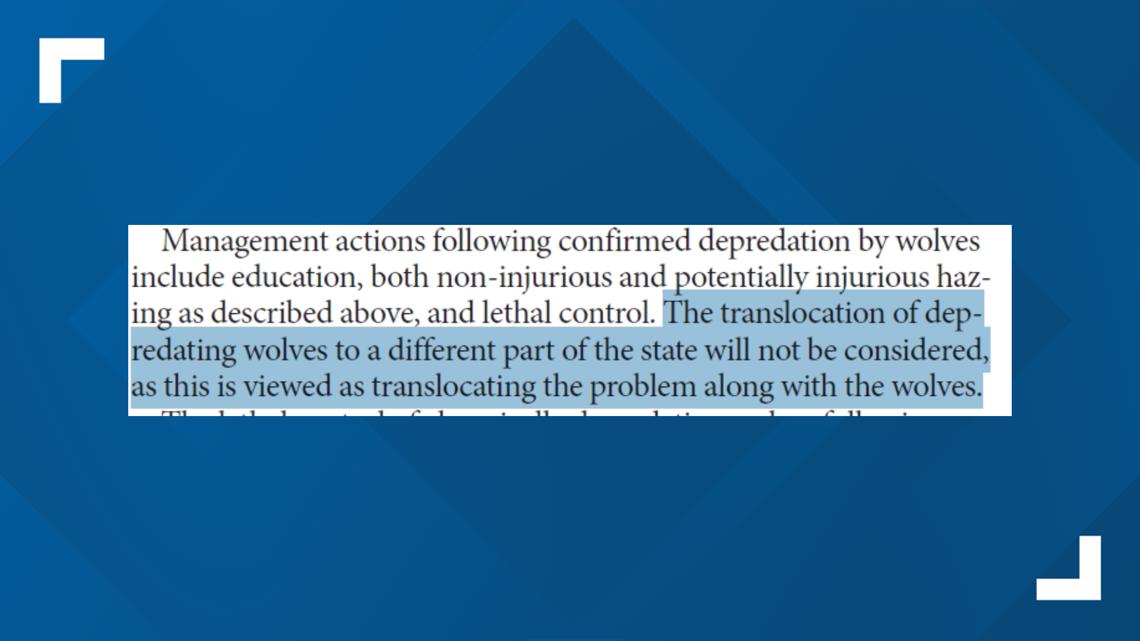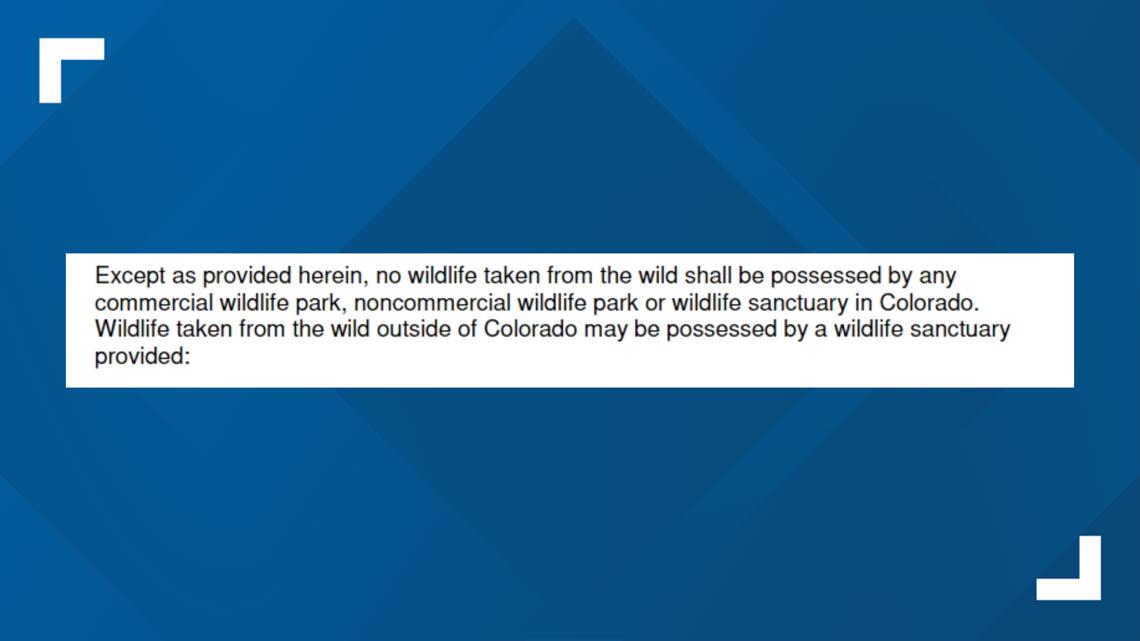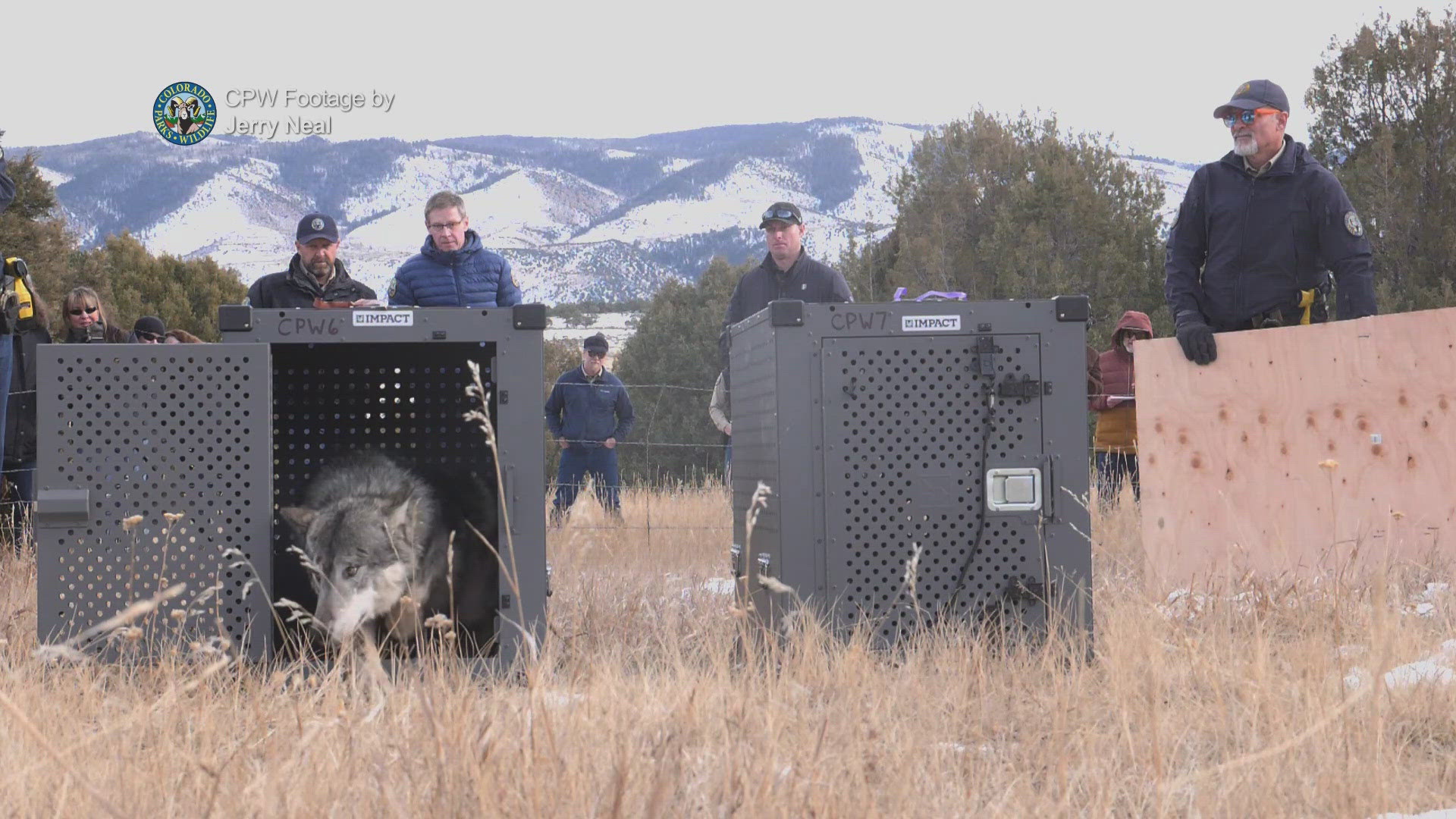GRAND COUNTY, Colo. — Colorado Parks and Wildlife (CPW) officials are attempting to do something two wolf experts say could be without precedent: Relocating wolves twice within nine months.
Adrain Treves, University of Wisconsin-Madison professor, says a move comes with serious risks for the wellbeing of the animals.
”Translocation is generally seen as an appeasement for humans, [but] not as a good way of handling large carnivores," Treves, who is also the founder of Carnivore Coexistence Lab, told 9NEWS.
In December, CPW brought 10 wolves from Oregon to Colorado. Tuesday night, CPW announced its employees began an operation to capture two of those wolves with their pups and relocate them.
“I am cautiously optimistic that it’s going to get done, and it’s going to work. I’m trying my hardest to be optimistic. I’m trying my hardest to believe that this is a positive first step," Grand County Commissioner and rancher Merrit Linke told 9NEWS.
CPW changes direction
For months, Grand County ranchers have been asking CPW to kill the wolves that are killing livestock, but CPW has refused to kill the wolves. This year in Grand County, CPW reports wolves have killed 16 sheep and cows.
The announcement to capture and relocate the moves came as a drastic departure from what CPW has been saying publicly.


A letter dated July 26, signed by CPW Northwest Region Manager Travis Black, denied a request for lethal removal. Black blamed a rancher for not doing more to stop wolves from killing livestock since, "these nonlethal measures could have prevented some, if not all, of [the person's name is redacted] depredations," the letter said, in part.
Two days later, CPW confirmed the wolves killed eight sheep in Grand County. That investigation remains ongoing.
On August 23, CPW Deputy Director Reid DeWalt said at a commission meeting that the state still expected to get more wolves this winter.
“We have a level of confidence that a new source will be found, soon, and that we will continue to proceed with the legally directed process with releases this winter," DeWalt told the CPW Commission.
He also said they planned to release the new wolves in areas where they had previously brought wolves.
"We really need to supplement the wolves we put out," DeWalt said.
The plan to capture and relocate the wolves was not brought up at the meeting.
What does relocation mean?
CPW has not explained the plan for relocation.
"The ultimate goal of the operation is to relocate the pack to another location while we assess our best options for them to continue to contribute to the successful restoration of wolves in Colorado," said CPW Director Jeff Davis, in a press release.
A CPW spokesperson denied 9NEWS' request for an interview.
One wolf expert who talked with 9NEWS reporters did not believe any other state would accept the wolves, and Colorado's Wolf Restoration and Management Plan eliminates the possibility of moving the wolves elsewhere in Colorado.


"The translocation of depredating wolves to a different part of the state will not be considered as this is viewed as translocating the problem along with the wolves," the wolf management plan states.
A CPW regulation prohibits wildlife taken from the wild going to wildlife sanctuaries in Colorado.


The regulation does not appear to prohibit the wildlife from going to sanctuaries outside of Colorado.
“I’m really worried that moving the Copper Creek wolves into unfamiliar territory is a death sentence for the pups, especially if the wolf family isn’t kept together,” said Alli Henderson, southern Rockies director for the Center for Biological Diversity.
Relocation risks
“I would say the scientific consensus worldwide is that translocating large carnivores that you’re concerned about is not an effective or optimal way of dealing with conflicts with livestock," Treves said when asked to assume wolves would be released into the wild.
Treves says it's difficult because any move poses a risk to wolves. One of the reintroduced wolves in Colorado already died. He also says wolves must be released far enough from their den so they won't try to return.
Treves promotes nonlethal measures to have livestock and wolves coexist. He says relocation should not be considered nonlethal.
“Animals can die when they’re under the immobilization chemicals. It’s extremely stressful and there’s no guarantee they will do well at the destination site," Treves said.
"People are avoiding making hard decisions."
"You need a highly trained team," said Carter Niemeyer, a retired U.S. Fish and Wildlife Service wolf recovery coordinator, when asked what it takes to capture wolves.
Niemeyer has decades of experience capturing wolves.
"This is the worst time of the year to catch wolves from a helicopter," Niemeyer said.
He explained with the vegetation being so thick right now, it's very hard to see wolves on the ground.
Niemeyer says when relocating the wolves if CPW succeeds in capturing them, the animals would have to be put into a holding pen for several days to acclimate to their new location. Otherwise, he says it is likely the adults would go off in different directions, and then the pups would die.
"It's kicking the can down the road. People are avoiding making hard decisions," Niemeyer said in response to CPW's capture and relocation plan.
The other method to catch wolves is with a foot hold trap. Mark Hebblewhite, professor at the University of Monata's Ungulate Ecology Lab, has experience using those. He says it could take an average of one week to catch a wolf with the trap. He also told 9NEWS, it is unlikely CPW could capture entire pack.

